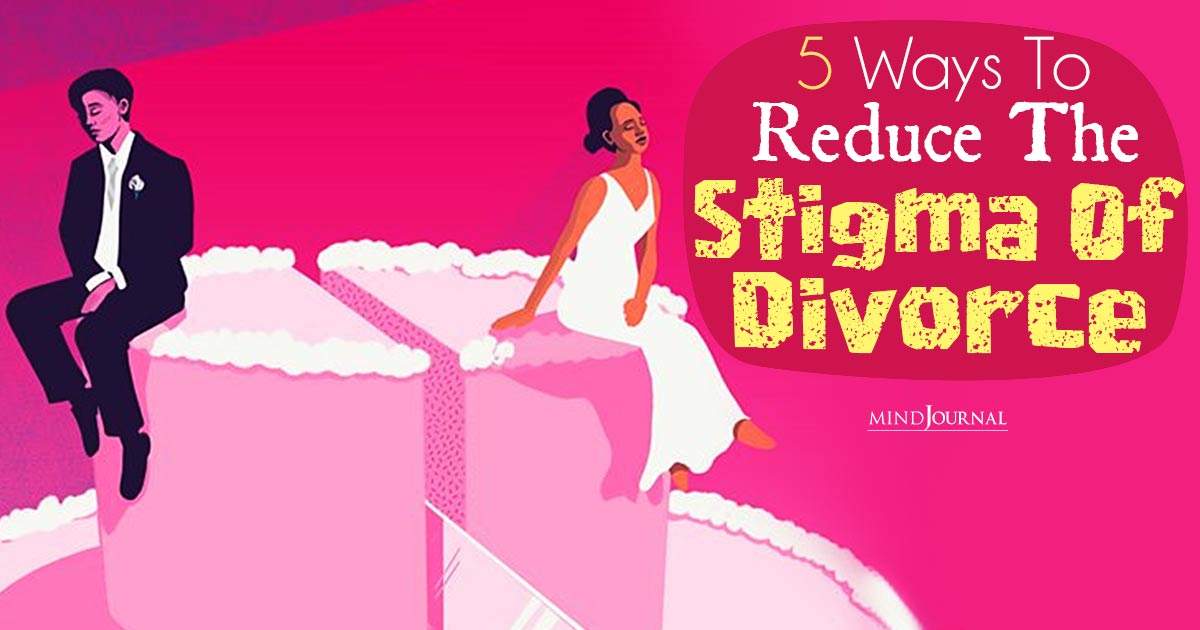Staying together for the kids doesn’t work.
There are plenty of good reasons for couples to stay together and work things out when times are tough. After all, having a healthy marriage isn’t always easy, and it takes the concerted effort of both parties daily.
Deciding to end your marriage is a big one when there is no question that divorce is hard on kids. It has the potential to shatter their confidence, make them feel insecure, and negatively affect their romantic choices in the future.
The damage can be especially harsh when there are broken promises, financial hardships, legal battles, and emotional tug of wars between parents.
So, why would any good mother or father entertain splitting up a family and potentially threatening their children’s healthy development?
Because there are times when divorce is simply better for your child than staying together ever could be.
Many of the negative impacts are dependent on factors like the age of the children, how they learn about the divorce, and their unique personality – as well as the nature of support they get through the adjustment period. Young children are extraordinarily resilient, and they can learn to cope – even flourish – after a painful divorce.
A divorce doesn’t have to ruin your children, but an unstable, unhealthy one will.
Children deserve to grow up in a home that’s free from chaos and harm, and full of love – even if that love primarily comes from one parent. And, being a responsible parent means making tough decisions that will positively affect their future. If one parent doesn’t have the children’s best well-being top of mind, they are too embroiled in their drama, or discord has escalated to the point of no return, the responsible party may decide they need to leave the marriage.
Here are 5 specific situations that warrant a marital break-up/ divorce especially for the good of the children:
1. Concerns about physical safety
If you have fears about your child’s physical safety in the presence of your partners, such as young children left unattended or home alone, smoking in the house, or exposure to drugs or alcohol, access to weapons, or something otherwise putting your child in harm’s way, listen to them. Trust your instincts. Splitting up may be your only way to keep your kids safe.
2. Physical abuse
According to the National Domestic Violence Hotline, every minute, there are 24 victims of abuse by an intimate partner, and a child witnessed violence in 22% of intimate partner violence cases filed in court. When a child witnesses physical abuse, they can become just as scarred as the victim, confused, full of self-blame, and with an increased likelihood of being abused themselves – or becoming an abuser. If your spouse is hitting you or physically threatening you in some way, you can’t let this continue. Apologies and promises are often empty. Without professional help, something will inevitably trigger another episode, and the behavior will likely escalate.
Don’t let your kids get caught in the crossfire. Protect yourself. Protect your kids.
3. Emotional abuse
There is any number of abusing tactics that a spouse can unleash on the other. These may include:
- Calling you names or patronizing you
- Constantly criticizing you
- Belittling you, putting you down or making jokes at your expense
- Gaslighting you or making untrue accusations
- Public or private shaming
- Withholding affection, access to people or things, or financial support
- Isolating from family members and friends, or shutting down and shutting you out
- Controlling or manipulative behaviors
- Making threats
If your partner isn’t willing to acknowledge or accept responsibility for their behavior and get help, the only thing you can do is help yourself and help your kids. Shield them from witnessing this type of abuse and learning your spouse’s harmful ways.
4. Lying
Lying to kids hurts them. Kids generally get over a few fibs about The Tooth Fairy and The Easter Bunny, but they don’t recover when parents tell untruths. Even the little lies can be damaging. Kids need to trust that what their parents say is true, whether it’s about when they’re coming to pick them up, where babies come from, or more difficult events like job loss or death.
Sometimes the lie is intended to avoid a fuss or to shield your kids from worry or “adult issues.” In the end, lying hurts because it threatens a child’s security system. Kids need to know what truth is and what it is not. If they can’t get the straight goods from their parents, who can they trust? Kids who hear lies begin to doubt themselves and their parent’s love. They fear the world around them, or else they begin to adopt their parents’ pattern of lies.
If you and your partner can’t get on the same page about the value of truth, and it’s affecting your child’s sense of stability and self, think twice about staying together.
5. Constant conflict
Conflict isn’t inherently bad for kids. If your kids witness you getting into arguments, they learn that it is reasonable to disagree from time to time. The key to healthy parenting is also showing your kids how to resolve conflicts. If you can’t, it’s going to negatively impact your kids.
Regular conflict over money, radically different parenting styles or merely different personality types can contribute to growing animosity between partners. What follows is a cycle of anger, instability, and chaos.
Fact: Unhappy parents don’t raise happy children. According to sociologist Dr. Lisa Strohschein, marital discord has the most significant impact on child mental health, and her research shows that the effects of divorce can be observed in advance of the actual event.
When communication is non-existent beyond the fighting, the goodwill to collaborate has gone, and you’ve hurt each other past what any therapy can repair, it’s time to recognize the severe damage you’re doing to your kids.
If your kids have seen these devastating situations first-hand, they might feel relief in learning the news about the divorce. Or, they may not realize what was right for them at the time, but they will thank and respect you for it years from now.
When your children are parents themselves, they will appreciate the anguish that you went through in deciding to leave your marriage – no matter how difficult it was – to give them a better life. You’ll feel at peace being a role model who shows that everyone deserves to be well, happy, and safe.
You May Also Like:
- 10 Tips To Heal A Child’s Heart After Parental Divorce
- 7 Ways To Help Your Child Cope-Up With Your Divorce
- 7 Practical Tips For Effective and Healthy Co-Parenting After You Remarry
- How You Love Differently When You’re A Child of Divorced Parents









Leave a Reply